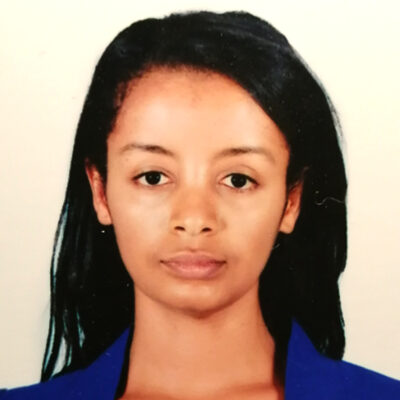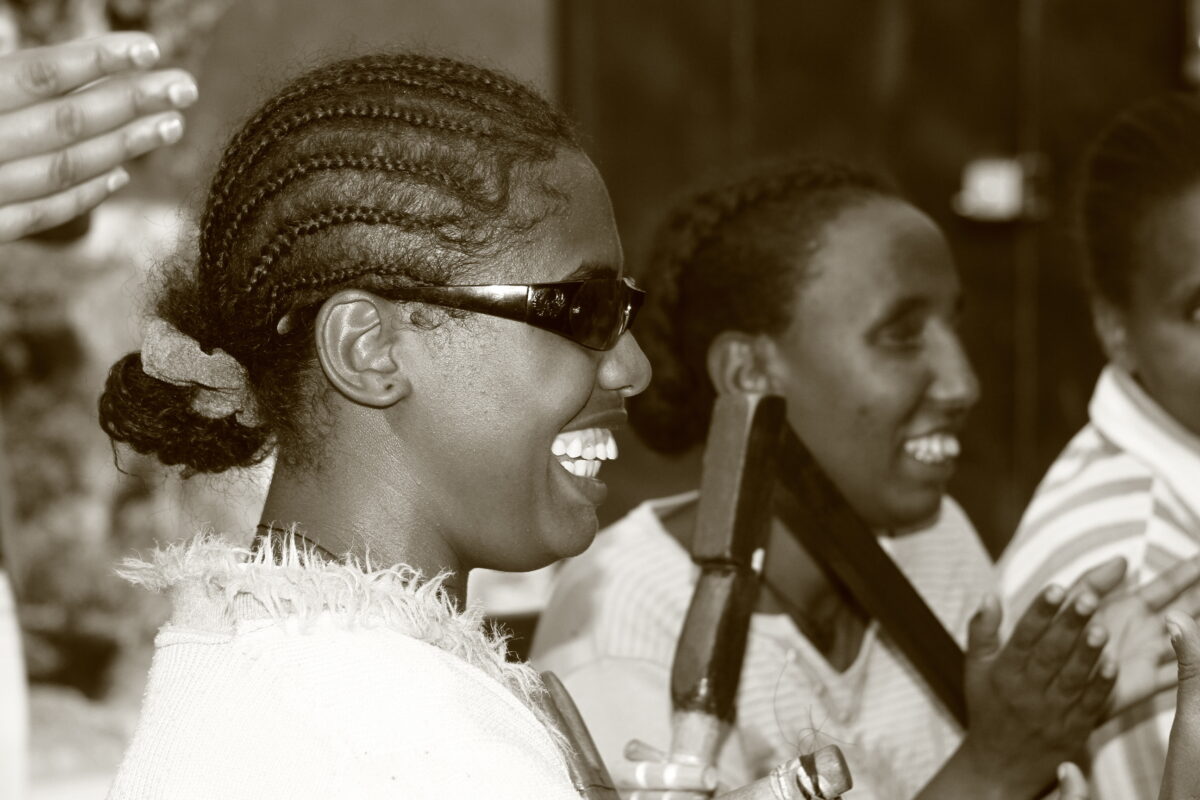
Ethiopia’s Wusate Birhan Abera Music Training Centre
Selamawit Tafesse
“The music centre made it possible for the blind and visually impaired to learn to play different traditional and modern instruments which may not have been considered instruments that the blind can learn to play.”
Founded in 2001, the Wusate Birhan Abera Music Training Centre was created to offer music education for the blind and visually impaired in Ethiopia, enabling aspiring young musicians to follow their passion and work towards a career in the music industry.
Strategies included:
- Addressing the lack of music education for the visually impaired
The Wusate Birhan Abera Music Training Centre was established to provide music education tailored for the blind and visually impaired who were excluded from mainstream music education institutions.
-
Learning traditional and modern instrumentsThe music centre included the study of traditional and modern instruments in its curriculum, making it possible for the blind and visually impaired to learn to play different instruments that they may not have thought the blind could play and therefore, not be limited to the basic ones.
-
Offering accredited music diplomas
Accredited diploma-level music courses were offered at the music centre instead of short-term courses. Students studying for a music diploma received an in-depth learning experience over three years, allowing them to hone their craft.
Addressing the lack of music education for the visually impaired
Established in 2001, the Wusate Birhan Abera Music Training Centre was dedicated to providing music education to the blind and visually impaired in Ethiopia. The name of the school means ‘my inner vision has lit up a light’ in Amharic. Although a few blind musicians have existed in the Ethiopian music scene, blind people had been excluded from attending the mainstream music education institutions such as the Yared Music School, the oldest government-run tertiary music school in Ethiopia, and there had not been much effort in establishing a music school for the blind either. When Wusate Birhan Abera was established, it became the first of its kind and the only music centre to offer music education with a curriculum tailored to the visually impaired and the blind, with recognition from the Ministry of Education. The music centre offered music programs and vocational training opportunities to prepare aspiring young musicians for entry into the music industry.
When you consider that there are reportedly 1.2 million blind people and 2.8 million with low vision in Ethiopia (according to the National Survey on Blindness, Low Vision and Trachoma in Ethiopia 2006¹) and this figure does not even include the visually impaired, a music institution such as Wusate Birhan Abera was much needed to address the lack of access to music education for this group.
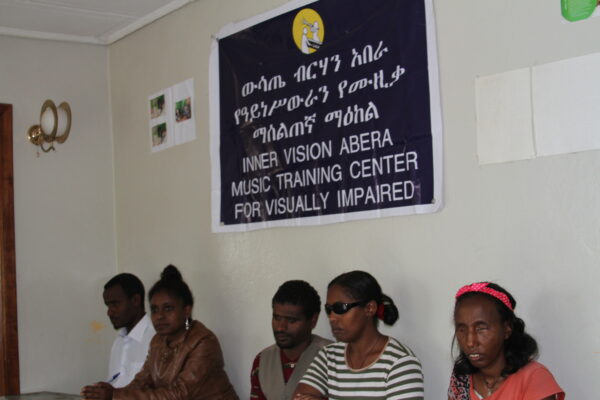
Wusate Birhan Abera students in class. Photo credit: Selam Ethiopia.
Learning traditional and modern instruments
In addition to being small in number, the few blind Ethiopian musicians that existed were also limited to singing or playing certain musical instruments such as the keyboard. The music centre brought about a shift in this norm by training the blind and visually impaired in other musical instruments such as the piano, guitar, saxophone, drums and traditional musical instruments like the kirar (a five- or six-stringed bowl-shaped lyre), masenqo (a single-stringed instrument also known as masinko) and the local drum. The music centre made it possible for the blind and visually impaired to learn to play different traditional and modern instruments which may not have been considered instruments that the blind can learn to play.
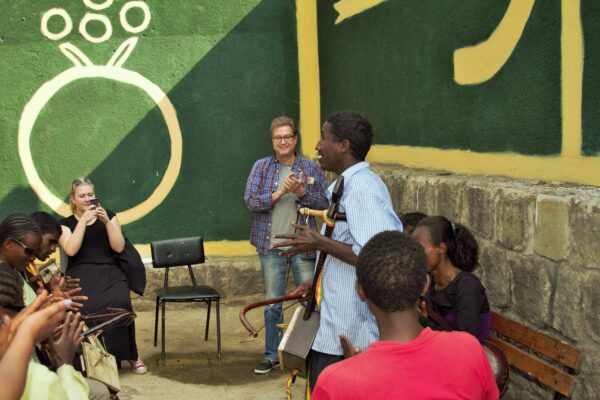
A student playing the masenqo. Photo credit: Selam Ethiopia.
The Wusate Birhan Abera Music Training Centre had trained three student batches over three years to achieve their diploma in music before it was closed in 2015 to 2016. Over 40 blind and visually impaired students, both men and women, had graduated from the school. The music centre also provided foundation courses on computers, management, literature and language, teaching methodology, special needs education and cultural policy to further cater to the educational needs of the blind and visually impaired.
Tasew Birhanu is one of 15 blind students (8 women and 7 men) in his batch that had been trained at Wusate Birhan Abera in kirar, bass guitar, masenqo, piano, traditional and modern drums, and vocal training for three years to graduate with his music diploma. He says that the training that he undertook at Wusate Birhan Abera had been very beneficial. Birhanu has since gone on to study at Kotebe Metropolitan University, a government-owned university, after attending Wusate Birhan Abera and says that he took more courses that focused on music at Wusate Birhan Abera than at Kotebe Metropolitan University. Birhanu says there were hardly any blind music teachers at Wusate Birhan Abera but the teachers there were accommodating to blind students and the music notes were prepared in Braille.
Bizuayehu Asfaye is a blind woman who joined Wusate Birhan Abera in 2012. She studied keyboard and kirar for three years before graduating with a diploma. She says she had first learnt about the institution from a woman who attended the school and came to work in the city that Asfaye was living in. Asfaye says that they have presented shows in different venues, including Yared Music School, and have received positive feedback.
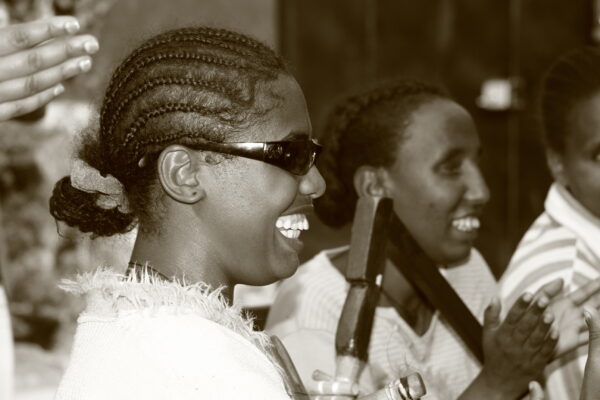
Students during music training at Wusate Birhan Abera. Photo credit: Selam Ethiopia.
Offering accredited music diplomas
The fact that the Wusate Birhan Abera Music Training Centre focused on receiving funding to provide music courses on an accredited diploma level instead of short-term courses set it apart. By doing this, the music centre had provided enough time for students to gain an in-depth music education and develop their craft as well as provided them with long-term stability. This also meant that students had financial support on a long-term basis rather than a short-term basis. This was a monumental achievement in a country where many educational and job opportunities are often limited for people with disabilities, as many of these marginalised groups struggle to even provide themselves with the most basic needs.
Wusate Birhan Abera had also covered the cost for the students of Tasew Birhanu’s batch to take the Certificate of Competency (COC) exams which are mandatory since it was under technical and vocational school. Birhanu and his fellow trainees had been able to take the COC exams up to level 3 but were not able to take the level 4 one which was the final exam, due to a lack of funding.
The music centre used to close for some periods before it could start back up again due to a lack of funding. It had operated for over a decade before Selam Ethiopia, an international NGO that works on the thematic area of culture, came into the scene to support them. Before then, board members used to support the music centre by contributing money. Selam Ethiopia sponsored Wusate Birhan Abera as part of its Inner Vision project which was made up of three components.
As part of the Inner Vision project, Sisay Mengste, the director of Selam Ethiopia says that the organisation provided some of Wusate Birhan Abera’s students with scholarships and covered other expenses such as transportation, rent, food and other necessities. Selam Ethiopia had also provided funding to keep the music centre running. Mengste says this had saved a lot of students from destitution. Another component of Inner Vision project was a study that Selam Ethiopia and partners such as the Network of Organizations for the Visually Impaired and Blind (NOVIB) carried out to investigate the challenges that prevented blind and visually impaired people from attending mainstream tertiary institutions such as the Yared Music School. Selam Ethiopia, together with NOVIB, lobbied for the blind and visually impaired to have rights to an inclusive education and their efforts resulted in the Yared Music School allowing this marginalised group of people to attend the music school. So far, one blind student has attended the school and graduated. At present, two blind people (a man and a woman), who have joined Yared Music School’s degree program to upgrade their education, are studying in the summer program. As per the summer program, they study one traditional and one modern instrument, the masenqo and the piano.
The legacy of the Wusate Birhan Abera Music Training Centre lives on in some of their former students. After completing his studies at the music centre, then subsequently a three-year diploma at Kotebe Metropolitan University, Tasew Birhanu now works as a music teacher in a primary school called Birhane Zare. He also occasionally plays the masenqo at traditional nightclubs.
After the closure of Wusate Birhan Abera in 2015 to 2016 due to a lack of funding, Selam Ethiopia continued its work by providing vocal training and musical instrument training to people with disabilities, in collaboration with Debre Berhan University and Bahir Dar University. Selam Ethiopia has also been providing short-term music training (for three months) and capacity-building (for three years) to people with different disabilities, including some former students of Wusate Birhan Abera. The music training is tailored to the needs of students with disabilities. Sisay Mengste, the director of Selam Ethiopia, says that the issue of livelihood is an issue for people with disabilities and leaves its mark on the sustainability of music training. On a more positive note, some graduates of Wusate Birhan Abera can sometimes be found performing at the Yekegnet Awetar Club, a venue that embraces and celebrates the talents of people with different types of disabilities.
Selamawit Tafesse
| Selamawit Tafesse is a freelancer working in communications. She is a Chevening scholar who has worked in the media and communications sector for over 6 years for various organisations including the Ethiopian Radio and Television Agency, the national Television and Radio station, the Ethiopian Ministry of Education and the National Associations of Persons with Disability. She received her Bachelor’s degree, majoring in print journalism, and a Masters in Journalism and Communications from Addis Ababa University, Ethiopia. She got her second master’s degree in Media Practice for Development and Social Change from Sussex University, UK. |
What is the Imagine Around the World Project?
A partnership with the British Council Australia, the Imagine Around The World Project aims to document case studies from numerous countries outside of US, UK, Canada, Australia and New Zealand to share best practice and leadership in cultural diversity, cultural equity and inclusion in the arts, screen and creative sectors. This project is managed by Diversity Arts Australia and supported by Creative Equity Toolkit partner, British Council Australia. To find out more click below – or read the other case studies as they go live here.

